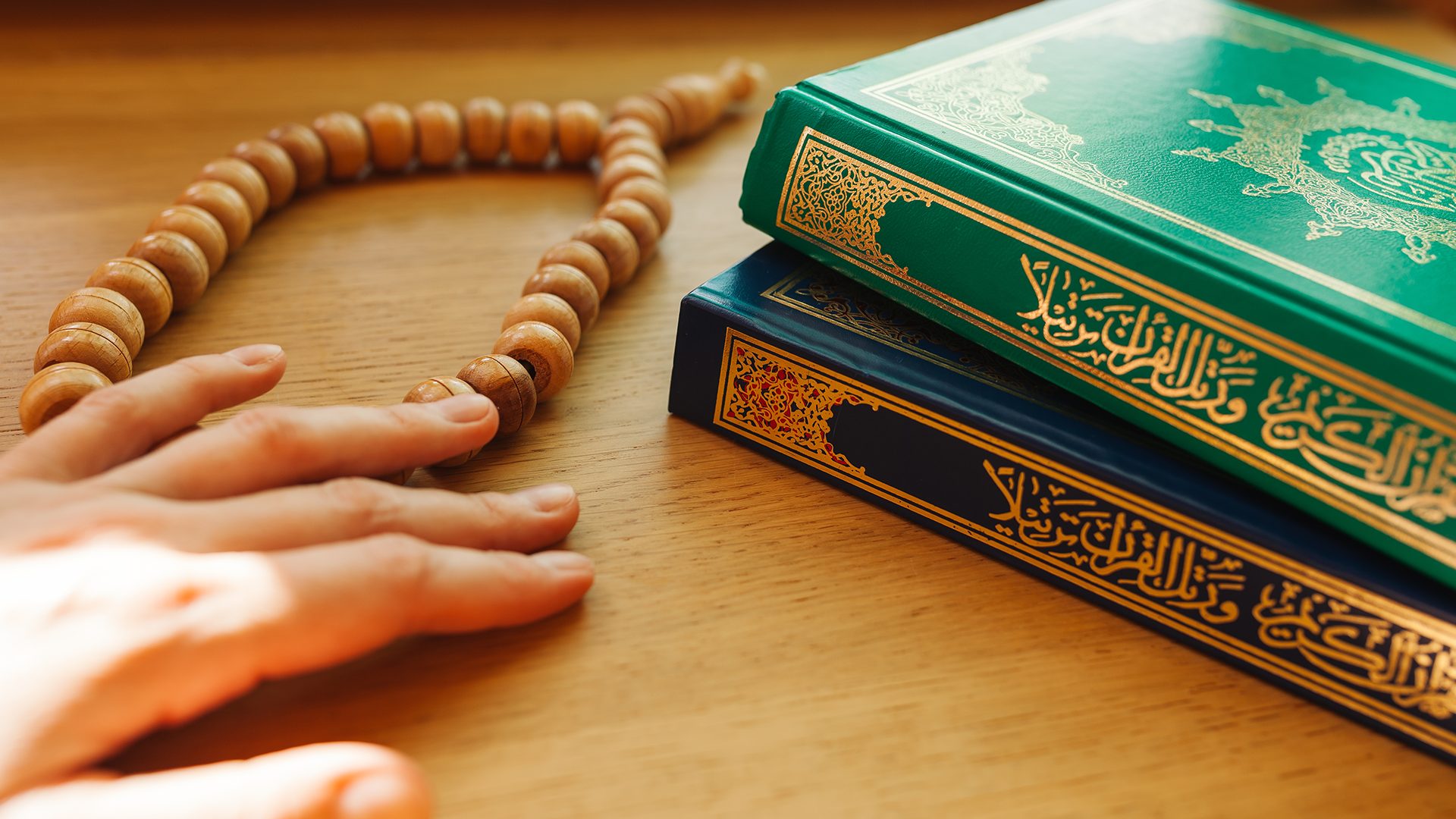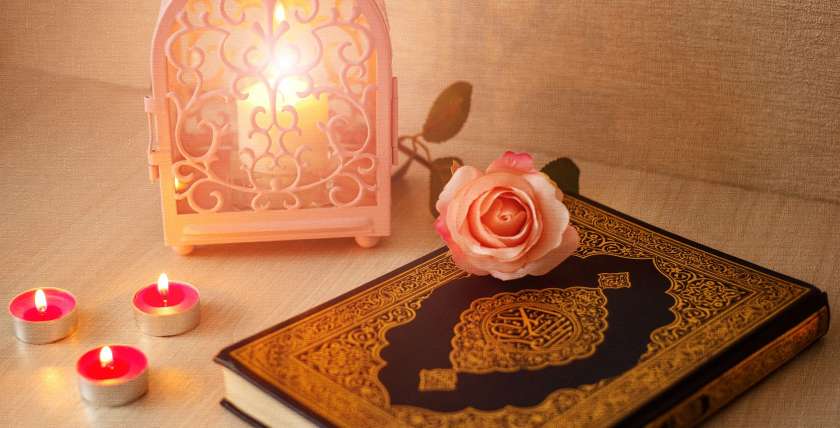As to the Koran, it consists exclusively of the revelation or commands which the Prophet professed, to have received from time, as a message direct from God; and which under divine direction, the Prophet delivered to those about him.
Every syllable of the Koran is of divine origin, eternal and ‘uncreated’ as the Deity Himself. It is one of the Islamic arguments against the Jewish and Christian Scriptures, that they are not exclusively oracles professing to proceed from the mouth of God.
The Prophet him-self neither read nor wrote. His being an illiterate man, enhances the marvel of his revelation.
At the moment of inspiration or shortly after, each passage was recited by the Prophet in the presence of friends or followers, and was generally committed to writing by someone amongst them, at the time or afterwards upon palm-leaves, leather, stones, or such other rude material as conveniently came to hand. These divine messages continued throughout the twenty-three years of his prophetic life, so that the last portion was not received till near the time of his death.
The Koran, being the divine revelation and the corner stone of Islam, the recital of a passage from it formed an essential part of daily prayer, public and private; and its perusal and repetition were considered to be a great privilege.
The preservation of the various chapters during the life–time of the Prophet, was not altogether dependent on their being committed to writing.
The Koran was committed to memory by almost every adherent of Islam, and the extent, to which it could be recited, was one of the chief sources of distinction, in the early stages of Islam. Amongst a crowd of warrior martyrs, he who had been the most versed in the Koran, was honoured with the first burial.
The person who in any company could most faithfully repeat the Koran, was ipso facto entitled to conduct the public prayers, and in certain cases to pecuniary rewards.
The retentive faculty of the early Arabs favoured the task; and it was applied with all the ardour of an awakened spirit, to the Koran. Several of the Prophet’s followers could during his life–time repeat with scrupulous accuracy, the whole as then in use. Four or five such persons are named; and several others also who could very nearly repeat the whole before the Prophet’s death.
“However retentive the Arab memory, remarks Sir William Muir, we should still have regarded with distrust a transcript made entirely from that source. But there is good reason for believing, that many fragmentary copies, embracing amongst them the whole Koran, or nearly the whole were during his life–time made by the Prophet’s followers.
“Such as the condition of the next during Mohammed’s life time, and such it remained for about a year after his death, imprinted upon the hearts of his people, and fragmentary transcripts increasing daily”
Further the same writer states: “The contents and arrangement of the Koran speak forcibly for its authenticity. All the fragments have, with artless simplicity, been joined together…
Even the frailties of the Prophet, as noticed by the Deity, have with evident faithful-ness, been entered in the Koran…
In fine, we posses every internal guarantee of confidence (namely in the authenticity of the Koran, as it exists in the present copies).
…. There is otherwise every security, internal and external, that we possess that text which Mohammed himself gave forth and used.
So carefully, indeed, has it been preserved that there are no variations of importance– we might almost say no variations at all– to be found in the innumerable copies scattered throughout the vast bound of the Empire of Islam.
Yet, but One Koran has been current amongst them; and the consentaneous use by all of the same Scripture, in every age to the present day, is an irrefragable proof, that we have now before us the very text prepared by command of the Caliph Othman who was murdered some time after the compilation of the Koran.
There is probably in the world no other work, which has remained twelve centuries (1861), with so pure a text.1 This is only because the various revelations in the Koran, regarding its divine nature, and its remaining forever free from corruption or contradistinction, are rightly confirmed. Here are a few verses bearing on this point:
“We have surely sent down the Koran; and we will certainly preserve the same from corruption.
“This Koran could not have been composed by any, except God; but it is a confirmation of that which was revealed before it, and an explanation of the scripture; there is no doubt therefore; sent down from the Lord of all creatures.
Will they say, (Mohammed) hath forged it? Answer, Bring therefore a chapter like unto it; and call whom ye may (to your assistance) besides God, if ye speak truth.”
“Say, Verily if men and genie were purposely assembled, that they might produce (a book) like this Koran, they could not produce one like unto it, although they assisted each other. And we have variously propounded unto men in this Koran, every kind of figurative argument; but the greater part of men refuse to receive it, merely out of infidelity.”
Ready to learn much more about the Koran? Check out our online Quran Classes available now with the best tutors!





